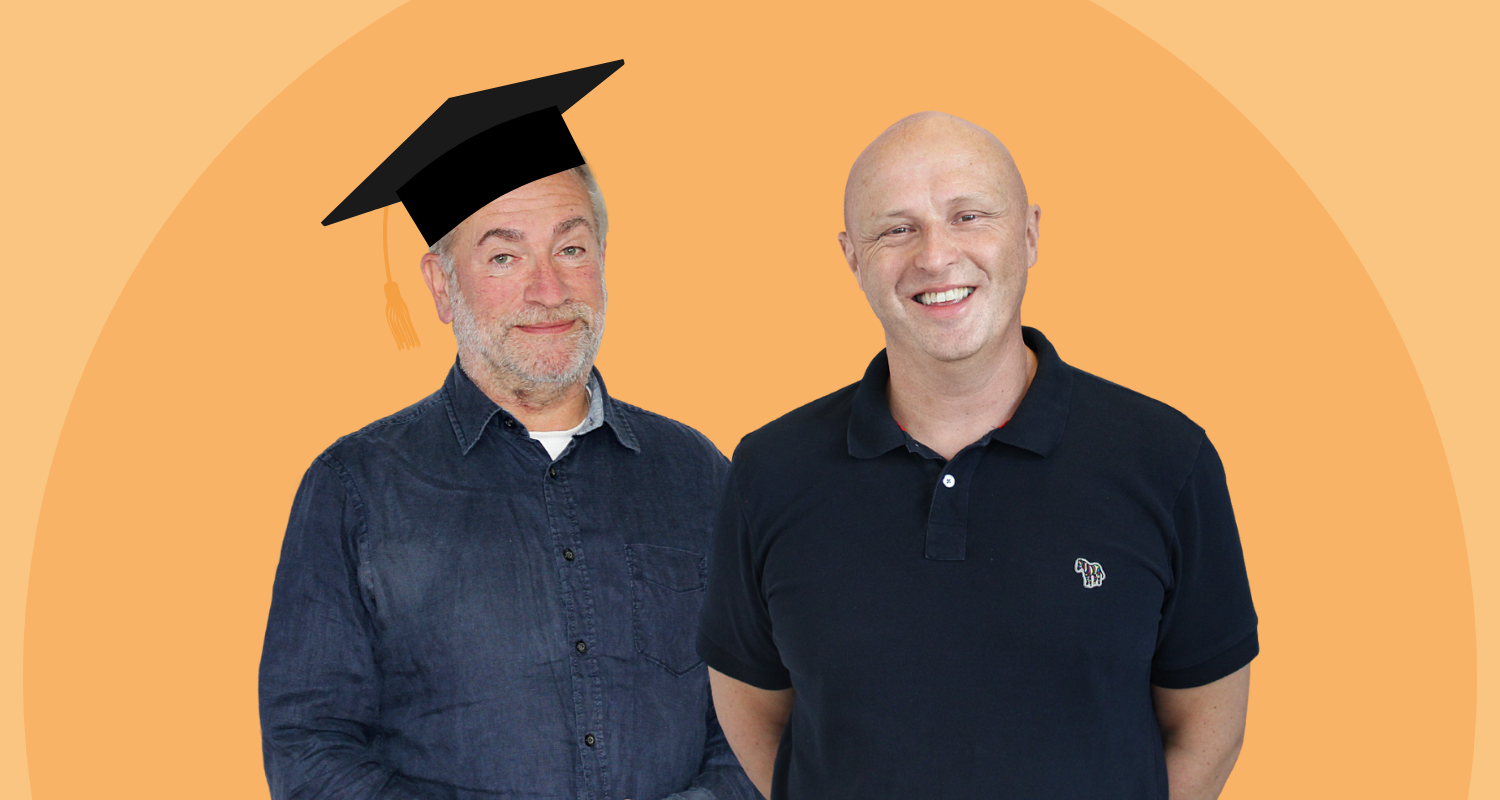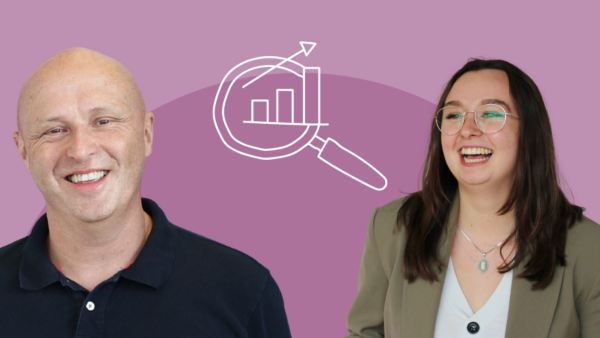Podversation transcript:
Hi, my name’s Dr Paul Brewerton, the strengths guy, Doctor of Organisational Psychology and founder and Chair of Strengthscope. I’m very excited today to have on the show the most wonderful Mr Paul Mehra.
Paul is a learning and development consultant at Strengthscope, and he also has his own coaching consultancy. He’s been delivering training, coaching and team development for the past few decades (how long Paul?) and Paul has a passion. And I mean a PASSION for education and learning.
So welcome to the podcast Paul – as we are now named…Psychology@Work with the strengths guy.
So today’s podcast is on a topic that I know is going to be of major interest to a lot of our audience, as it regularly comes up in conversation – strengths in education. Why do we need the strengths philosophy in education? How can we introduce more strengths thinking and practice into schools, colleges, universities, all places of education? And what needs to change to enable this?
Before we get into this very meaty topic, Paul, tell us more about you… birth to now, shouldn’t take long. Particularly your interest in strengths and education and where that’s come from…
Unusually for a young teenager in the early 70s I was very focused on what I wanted to do when I left school, and that was to be a lawyer (and ideally a barrister!) – I think it was the drama that appealed, having watched too many films and tv shows featuring courtroom dramas!
So that was my fixation throughout secondary education, until I got to the point of applying to universities – I had (fairly unusually, even for those times) a good careers adviser at school who suggested I didn’t apply to do a law degree (as my predicted grades would probably not get me to one of the better universities for law) but rather go for a subject I knew and loved, which in my case was (and still is) history.
So that’s what I did – got my history degree from Kings College London, and then went to law school to study further. And I hated it! It was a matter of learning law case after law case, and although the subjects were often fascinating, I just could not cram any more facts and figures into my brain at that point. So I left and became yet another graduate with no idea what to do. After a period living and France and working in pubs and hotels, I started to apply for graduate management trainee roles and I landed my first role with Nationwide Building Society – after 3 years in the retail environment, I moved to the training department (I discovered I loved training and developing staff!) and I have never looked back.
During my time at Nationwide, and later at Zurich Insurance, I had roles in almost every area of L&D you can name – both in the UK and later internationally.
So a passion for learning has always been with me, both in terms of my own personal development but also for developing others.
I am a parent, and a grandparent and I have been a school governor and currently I am an Enterprise Advisor (supporting my local secondary school with their careers curriculum)
I first discovered the concept of strengths when I was at Zurich – the focus on positivity, energy and individuality spoke to me really powerfully, at a time when I was working on yet another leader competency framework which sought to “box” leaders into neat types based on a tick box activity rather than playing to natural strengths!
-
So for you, how can the concept of strengths help in education settings? At different stages/ages/places?
- It’s for all ages of children and young adults (and indeed for all of us as we journey through work and life)
- It’s for parents
- It’s for teachers (who themselves are under great stress and pressure much of the time and need to attend to their own mental health and well-being, as well as those of their pupils
- And it’s for anyone involved in working with young people
- It also has a powerful role to play in supporting neurodiversity
- We know that humans have multiple intelligences, not just academic (see Gardner, 1983)
Strengths concepts are so important for positive human development – finding the path of possibility as opposed to being stuck on the path of limitation, and developing growth mindsets that nurture curiosity around what we can do and are energised by, rather than focusing on weaknesses and spending all our time developing those
Remember natural negativity bias – I used to focus on the least good results my own children had when it came to school reports – with my grandchildren I always focus on and celebrate all the best results first, and get the less good results into perspective – what a difference that makes to them and to me!
More so than ever, as children “retreat” into the world of (un)social media, and are still living with the effects of a prolonged lockdown, the need to support them in developing social skills and self awareness through lens of what they are naturally good at and enjoy becomes ever more poignant
-
What is education missing at the moment that strengths could bring? What’s your vision??
- My vision: “teachers, parents, communities – let’s educate to our strengths and prepare our kids for life” (Ted Dintersmith)
What is missing?
- Practical stuff, helpful stuff. Things that help rather than those that are irrelevant.
- “we just reinforce old methods – test, measure and improve for an outdated system rather than innovate for a new one” (Dintersmith)
- We are no longer an agricultural or manufacturing economy – we need different skills and knowledge to help meet the challenges of today’s (and tomorrow’s) world – climate change, developing a green economy, a digital economy, the widespread advent of AI and VR – we are in the middle of the new industrial revolution right now!
- We don’t want institutions of performance – we need schools and organisations that open up people’s passions, engagement, enthusiasm (Aman Zaidi)
- For many, education is essentially a drainer of energy – where children spend a lot of their time avoiding, escaping, ignoring and switching off
-
Have you seen this approach work anywhere, are there examples of good practice?
Yes – my own work with local schools as an Enterprise Adviser. I have seen how talking about passions and strengths (and not academic subjects) can bring children to life, even those who are normally shy or quiet. I am also working with the local education body using strengths to support non-academic children with their applications for apprenticeships and colleges, and to help them think differently about the world of work
Strengthscope is working with a number of universities that use strengths to support graduates in their career choices and even in the way they learn and study, and many of our corporate clients use strengths on the graduate development programmes
I have a growing network of strengths practitioners who are working with schools and colleagues up and down the country in this space – some fairly large projects and many smaller ones, and I know there is a growing movement in this space worldwide – just search for “strengths in education” in your browser!
-
What’s your ask? Your call to action? Of whom and what?
My call is to anyone who is working in this space, or trying to, to get in touch. Connect – share – build.
How might we turn this into a more powerful national or global issue? Let’s build a case, share stories and testimonials and statistics and lobby for real change!
-
Paul, what are your top tips for parents/carers and/or educators in terms of practical ways you can bring strengths thinking into your parenting or teaching practice?
Be curious – ask children what they enjoy, what gives them joy and energy and passion – rather than transferring your own ideas of what will make them happy. You as a parent hold the bow that releases the arrow that is your child – once that is done, recognise that they are flying alone, and your role is to support and encourage – you should not seek to push them off trajectory!
Let them try different things out. It’s ok if they don’t enjoy things at least they have had a go. We learn from mistakes, that is part of the journey of growth.
Look for educational bodies that will do the same, and that are not primarily focused on achieving the best academic statistics but will help all children tap into their passions and develop them
-
If people want to get in touch with you, what are the best ways to do that?
Resources
Work by Martin Seligman, Carol Dweck, Howard Gardner, Marcus Buckingham
TED TALKS
Ken Robinson – “Do schools kill creativity?”, “Bring on the learning revolution!”, “How to escape education’s death valley” (Also see his books, including “The Element: How Finding Your Passion Changes Everything”)
Ted Dintersmith – “Why schools should teach for the real world”
Aman Zaidi – “Towards a strengths-based education system”












